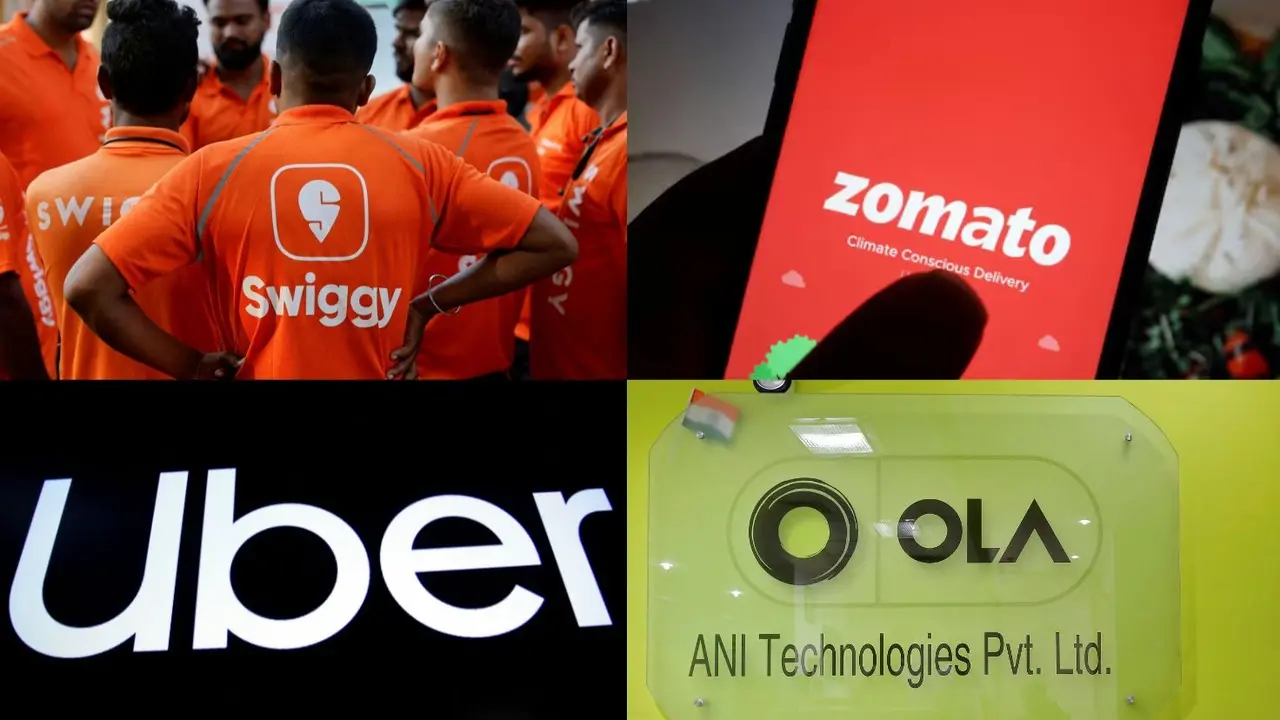Updated 5 June 2025 at 14:48 IST
Major Jolt To Swiggy, Zomato, Ola, Uber: Only EVs, CNG Vehicles Allowed In NCR From 2026 - Details
CAQM has announced strict new rules targeting commercial vehicles used by aggregators and delivery service providers which will effect companies like Swiggy, Zomato, Ola, and Uber, who heavily rely on conventional vehicles for last-mile delivery and passenger transport.
- Republic Business
- 2 min read

In a major move to combat rising air pollution in the National Capital Region (NCR), the Commission for Air Quality Management (CAQM) has announced strict new rules targeting commercial vehicles used by aggregators and delivery service providers.
This includes major players like Swiggy, Zomato, Ola, Uber, and various e-commerce logistics providers.
The transport sector has been identified as a major contributor to NCR’s year-round air pollution, with a particularly severe impact during the winter months.
Commercial vehicles—especially those used by aggregators and delivery companies—are said to be responsible for a significantly higher level of emissions due to their extensive usage, overloading, and poor maintenance.
Advertisement
When New Rules Will Be Effective?
To push for cleaner mobility, Delhi had already launched the Motor Vehicle Aggregator and Delivery Service Provider Scheme, 2023.
Now, CAQM has expanded the clean mobility push to the entire NCR, directing all states—Haryana, Uttar Pradesh, and Rajasthan—to implement similar policies, especially in high vehicle density cities like Gurugram, Noida, Faridabad, Ghaziabad, and Sonipat.
Advertisement
Effective January 1, 2026, no new petrol or diesel vehicles will be allowed to be added to the fleets of 2-wheelers, 3-wheelers, and light commercial vehicles used by aggregators and delivery services across NCR.
Only CNG or electric 3-wheeler autorickshaws can be newly inducted. For 4-wheeler light commercial and goods vehicles (up to 3.5 tons), no pure ICE (internal combustion engine) vehicles running on petrol or diesel will be permitted to join the fleet.
However, the existing petrol or diesel vehicles already in service can continue to operate.
Major Jolt To Swiggy, Zomato, Ola, Uber
The Commission has directed all state governments in NCR, including Delhi, to monitor implementation closely. They must develop dedicated online portals for compliance tracking, similar to the one already operational in Delhi. Public awareness campaigns via media have also been mandated.
This decision is set to significantly impact operational costs and fleet management strategies of companies like Swiggy, Zomato, Ola, and Uber, who heavily rely on conventional vehicles for last-mile delivery and passenger transport.
As the push toward zero-emission vehicles gains momentum, businesses will now have to fast-track their EV adoption plans or face compliance hurdles in one of India's most pollution-sensitive regions.
Published By : Anubhav Maurya
Published On: 5 June 2025 at 14:30 IST
